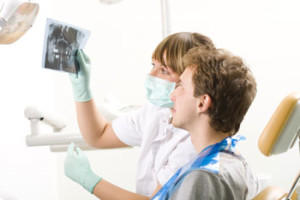 Many people wonder at what point a toothache is considered a dental emergency. It’s important to understand that the more severe your pain, the more important it is to seek proper dental care. Any toothache lasting longer than a day or two and causing pain and discomfort is considered a dental emergency. If you don’t seek proper care, the toothache will only worsen. You could have a broken tooth, a lost crown or filling, or even a broken tooth. Any of these conditions can leave you vulnerable to infection.
Many people wonder at what point a toothache is considered a dental emergency. It’s important to understand that the more severe your pain, the more important it is to seek proper dental care. Any toothache lasting longer than a day or two and causing pain and discomfort is considered a dental emergency. If you don’t seek proper care, the toothache will only worsen. You could have a broken tooth, a lost crown or filling, or even a broken tooth. Any of these conditions can leave you vulnerable to infection.
Is a Painful Toothache a Sign of a Dental Emergency?
If your tooth becomes infected, it may continue to deteriorate. As your infection progresses, the pulp supporting your tooth will begin to die. This will give you unbearable pain and discomfort. Eventually, your tooth will die or possibly fall out on its own. It’s important to understand that anytime you have a tooth infection, you may be subject to further infections, such as your sinus cavities and other areas of your body. It’s important to understand that an infection can rapidly spread, making you feel sick overall, and this can possibly cause even more damage to your health.
Your toothache is especially urgent if you have a fever along with your pain. This is a sign that infection has likely set in, and the infection can cause further damage to your tooth, surrounding teeth, gums, and the rest of your body. Your dentist can evaluate your tooth and recommend the best procedure for you to keep your tooth as long as possible. If you lose your teeth, you will have to have dentures or an implant; both procedures can be very costly, so taking care of your teeth is important.
The sooner you seek help for your toothache, the less likely you are to have long-term health damage to your body. You may be able to save your tooth if you seek dental attention immediately. The longer you wait for proper treatment, the more likely you are to require further dental procedures that are far more expensive. You may risk having to have a root canal, a tooth extraction, and a course of antibiotics if you leave a painful toothache for too long. Proper dental care can greatly improve your overall health. The more pain you’re in, the more serious the emergency, so it’s best to get to your dentist right away. Call your dentist immediately to set up an emergency appointment if you have tooth pain.
Back to dentalemergencyalbuquerque.com





